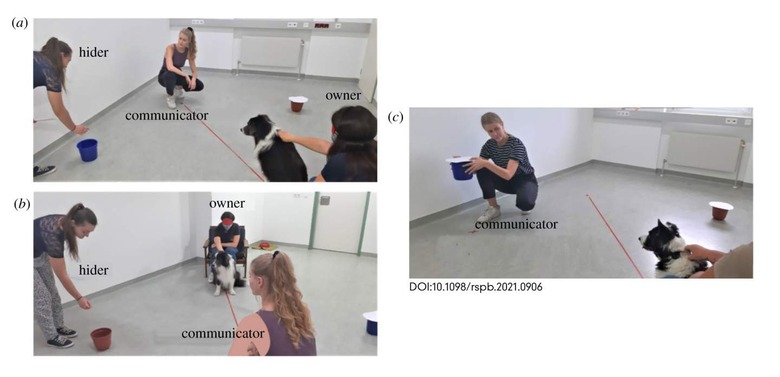Research Says Some Dogs May Know You Are Lying
According to newly published research, dogs are sensitive to lies. More specifically, evidence was found that pet dogs have mechanisms underlying sensitivity to others' beliefs. It seems likely that dogs have what it takes to sense whether a person speaking with them is being deceptive, whether they believe what they are saying is true. Tests were run on a group of 260 dogs to see if they were able to distinguish between human true (TB) and false beliefs (FB).
The test began with two opaque buckets. A test subject, a dog (Canis familiaris), was shown food being placed in one of two buckets by one experimenter (human). A second experimenter displaced the food (from one bucket to the other). Finally, a communicator (also human) gave the dog a suggestion for which bucket they should choose to find the food.
The test system included an array of different dogs, including Schnauzers, Molossoids, Swiss Mountain dogs and/or Cattledogs. The experiments also included "pointing dogs", retrievers, and terriers. They found that terriers stood alone in their following of the communicator's suggestion more often in the truth group than in the false group.
The True test was run first. The communicator pointed to the bucket that was empty, and all dog breeds appeared to seek the bucket to which the communicator pointed. The False test is run second, and also has the communicator point to the empty bucket. Most dogs still went to the bucket to which the communicator pointed.
The dogs saw the food placed in the bucket in every trial. They always knew (or thought they knew) which bucket had the food. It's also important to note that after each dog was shown the location of the food in one of two buckets, the food was "sneakily removed" so neither bucket actually contained food when the choice needed to be made. Per the research, "dogs did not seem to notice the removal of the food as they all still made a choice."

In the False test, terriers appeared to be the only dog breed that consistently made the opposite decision of the rest of the breeds. After the first "True" direction resulted in the dog finding an empty bucket, terriers tended to dismiss the directions of the communicator in the subsequent "False" test and pick the other bucket.
This does not mean that terriers were the only dog breed able to tell the difference between humans with true and false beliefs. It DOES mean that terriers were the ones who "behaved like human infants and apes tested in previous studies with a similar paradigm."
Once terriers started to stand apart from other breeds in experiments for this project, terriers were compared to border collies. Border collies have been "extensively tested in studies on social cognition" and are "cooperative workers" where terriers are considered "independent workers."
While it's possible that both breeds are able to detect human deception, terriers (independent workers) were more likely to choose the bucket with the food inside (regardless of command) than border collies (cooperative workers.) It's hypothesized by the researchers that cooperative workers simply interpret the first bucket point as meaning the communicator wanted to lead the dog to something new or unknown. The independent worker (terrier, here), is suggested to likely feel as though they've been misled, resulting in the dismissal of the communicator in the subsequent test.
The results are not absolutely conclusive on whether any dog can interpret the true or false intentions of a communicating human. If you have a dog – terrier, border collie or otherwise – it WOULD seem that the dog's categorization as independent worker or cooperative worker has likely effects on trust.
Your terrier is probably going to be quicker to distrust your intentions if you trick them into approaching an empty bucket when they expect that bucket to have food. Your border collie is far more likely to assume you have a good reason to lead them to an empty bucket, regardless of if your intent was to deceive.
For more information on this subject, take a peek a the research paper Dogs follow human misleading suggestions more often when the informant has a false belief as published in Proceedings of The Royal Society B (Biological Sciences), Volume 288 Issue 1955. This issue was published on July 28, 2021 and the paper can be found with code DOI:10.1098/rspb.2021.0906 right this minute. This research was authored by Lucrezia Lonardo, Christoph J. Völter, Claus Lamm, and Ludwig Huber.
